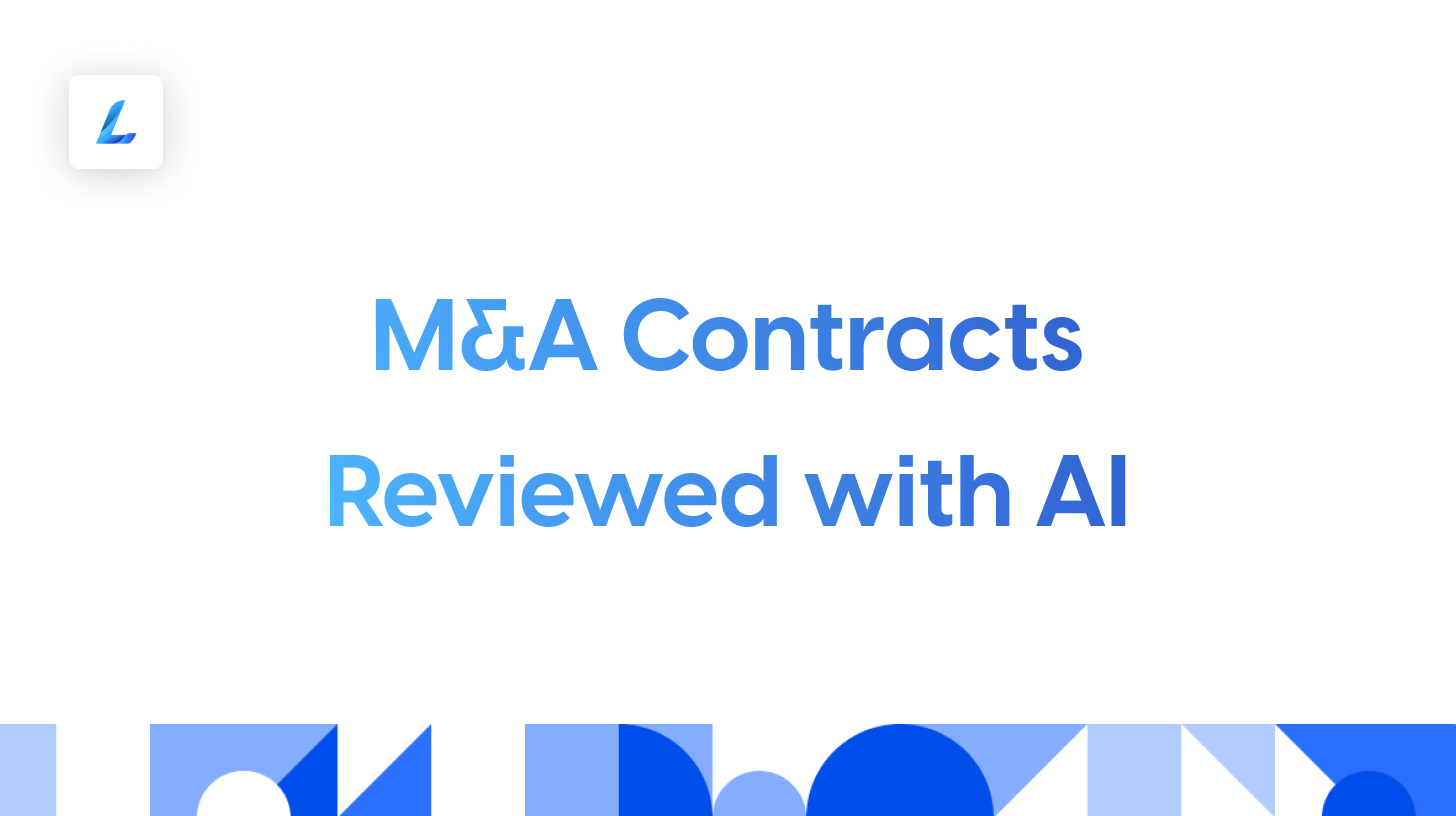M&A Contracts Reviewed with AI: The Next Legal Frontier
In today’s fiercely competitive business landscape, characterised by global challenges and industry upheavals, mergers and acquisitions (M&As) have emerged as crucial drivers for corporate growth and profitability.
However, a startling reality confronts us. The majority of M&As end up eroding rather than enhancing shareholder value, leading to staggering financial losses. Decades of comprehensive research reveals a grim picture: most M&A ventures do not deliver the projected synergies. In many scenarios, they deplete value, making 2 + 2 equate to 3 instead of the anticipated 4.
Given these gloomy statistics, one might ponder: Why does the corporate world persistently chase after such precarious deals? How can firms pivot from these value-depleting pursuits towards more fruitful M&A outcomes? What strategies can leaders employ to ensure their M&A endeavours are part of the successful minority?
M&A Overvaluation
A central revelation from various studies is uncomplicated yet profound: Overpaying for an acquisition invariably leads to value destruction, even if every projected synergy is realised. While this may sound straightforward, the harsh truth remains that overvaluation is rampant. Overpayment could be attributed directly, as when a company excessively values the assets or overestimates synergies. Alternatively, it could manifest indirectly, where unforeseen elements, such as cultural discord, vaporise the anticipated financial gains.
However, M&A success isn’t unattainable. Triumphing over the daunting odds necessitates meticulous planning from the pre-acquisition stage and a profound grasp of some pivotal principles.
This is where Legal AI steps in. By utilising AI-driven tools and platforms, companies can gain better insights into potential acquisitions, perform rigorous due diligence with increased speed and accuracy, and better predict the outcomes of their M&A activities.
Legal AI not only streamlines the contractual process but also helps in identifying potential pitfalls and discrepancies that might otherwise be overlooked. Through predictive analysis and data-driven insights, Legal AI can be the edge that companies need to increase their chances of making a successful acquisition.
The Pitfalls of Unfair M&A Contracts: A Cautionary Insight
Mergers and Acquisitions, by their very nature, are monumental endeavours. Beyond the evident financial implications, they carry the weight of employee futures, corporate legacies, and sometimes, even community welfare. An unfair M&A contract can have catastrophic repercussions, not just for the involved parties but for a broader set of stakeholders.
- Financial Repercussions: Unfair clauses or overlooked details in M&A contracts can result in substantial financial losses. This might stem from undervalued assets, overlooked liabilities, or missed opportunities in the market post-merger.
- Loss of Talent: If an M&A contract doesn’t adequately address employee rights and transitions, it could lead to the exodus of key talent post-merger, depriving the new entity of valuable human resources and industry expertise.
- Reputational Damage: Unfair M&A deals, especially when they become public knowledge, can tarnish the image of the involved entities. In the age of instant information, the backlash from consumers, investors, and even the general public can be swift and severe.
- Regulatory Penalties: Overlooking regulatory compliance in the M&A contract can result in hefty fines and legal consequences. This is especially true for sectors that are heavily regulated, like banking, healthcare, or energy.
- Operational Disruptions: A contract that doesn’t thoroughly outline the operational amalgamation post-merger can lead to business disruptions. Misalignments in systems, processes, or even corporate culture can hamper productivity and market presence.
- Legal Battles: Unfair contracts almost invariably lead to disputes. The ensuing legal battles can be not only costly in terms of finances but also consume vast amounts of time and resources, diverting attention from the core business.
Incorporating Legal AI and utilising AI Legal Assistants in the drafting and review process can significantly mitigate these risks. They ensure that M&A contracts are balanced, fair, and in the best interests of all parties involved.
M&A Contracts: Why AI Is The Need Of The Hour
Every M&A deal hinges on its contract. The complexities involved aren’t just about the financials but also regulations, employee rights, asset transfers, and much more. Traditional methods of reviewing these contracts often involve teams of lawyers working tirelessly for days, even weeks. Errors, given the volume of paperwork, are almost inevitable. This is where Legal AI is proving to be transformative.
By leveraging machine learning, AI can dissect an M&A contract, understanding its nuances, flagging discrepancies, and even suggesting amendments based on historical data.
How AI Legal Assistants Are Automating M&A Contract Reviews
The benefits of employing AI Legal Assistants in M&A contract reviews are manifold:
- Precision at Speed: M&A contracts, known for their length and intricacy, can be quickly parsed by AI, highlighting key areas that require human scrutiny.
- Historical Reference Checks: Using vast repositories of past agreements, AI can cross-reference clauses to ensure they’re in line with traditional norms and current regulations.
- Predictive Problem-Solving: Drawing from a database of past disputes, AI Legal Assistants can anticipate potential areas of contention and suggest preemptive solutions.
Consider this: A major tech company looking to merge with a European counterpart used an AI Legal Assistant to review the proposed contract. The AI quickly identified clauses that did not align with GDPR regulations, potentially saving both parties from a costly legal oversight.
Benefits and Challenges in AI-Powered M&A Reviews
As the world increasingly embraces technology, the realm of Mergers and Acquisitions (M&As) is no exception. AI-powered tools are changing the way M&As are reviewed, promising unprecedented efficiency and accuracy. But, like every innovation, these come with their own set of benefits and challenges. Balancing the potential advantages against the potential pitfalls is crucial for any company looking to harness AI in their M&A processes. Let’s delve deeper into the implications of this groundbreaking intersection of AI and M&A reviews.
Benefits:
- Time Efficiency: What takes legal teams weeks can be accomplished by AI in hours.
- Cost-Effective: Reduced man-hours translates to cost savings.
- Reduced Errors: AI Legal Assistants, like Legaliser’s platform, provide consistent accuracy, minimising the risk of oversight.
Challenges:
- Trust: Relying on AI for such critical tasks requires a paradigm shift in trust.
- Job Concerns: There’s a growing concern about the redundancy of entry-level legal jobs.
- Quality of AI Training: The efficacy of AI in these tasks is as good as the data it’s trained on.
The Future: AI-Driven M&A Contractual Landscape
With Legal AI becoming more prevalent, future M&A contracts could look significantly different:
- Real-time AI Negotiation Assistance: As talks progress, AI could provide real-time feedback on proposed clauses.
- Adaptive Learning: As more contracts are reviewed, the AI platforms can learn, adapt, and refine their analysis, providing even more precise feedback with time.
Conclusion: Embracing AI in M&A Contract Reviews
The intricate world of M&A contracts, with all its nuances, demands the precision and efficiency that AI brings to the table. As we stand on the cusp of a legal revolution, embracing Legal AI in M&A reviews promises not just efficiency but also a future where contracts are robust, clear, and equitable.
Ready to lead in the M&A space with AI-driven precision? Dive deep into the world of Legal AI and ensure you’re at the forefront of this transformation. Engage with solutions like Legaliser to bring unparalleled efficiency to your M&A contracts. Together, let’s shape the future of mergers and acquisitions.






